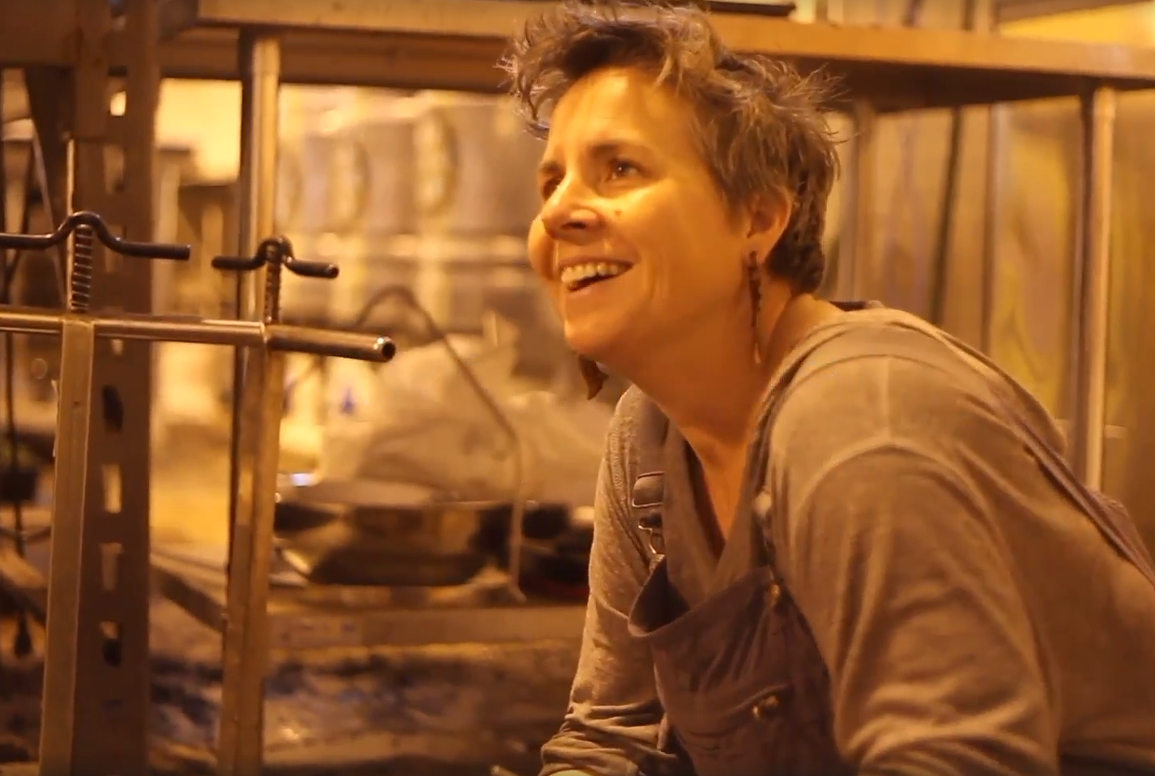LittleVillageMag.com: ‘I believe plows are greater than swords’: Sonia Kendrick, founder of Feed Iowa First, has died
by Paul Brennan | March 21, 2018
Update: Additional information, including the time and location of a memorial service, has been added to this story since it was first published.
Sonia Kendrick, founder of Feed Iowa First, has died. News of Kendrick’s death began circulating on social media on Tuesday evening, but no details have been released yet. She was 40 years old.
An interfaith service for Kendrick will be held at The Avacentre at Brosh Chapel in Cedar Rapids on Friday. The service will begin at 2:15 p.m. A notice on The Brosh Chapel’s site said the family asks that in lieu flowers, donations be made to “Feed Iowa First, the Freedom Foundation or another organization that provides support for veterans or food-insecure Iowans.”
Writing at Homegrown Iowan, Cindy Hadish described Kendrick as “a wonderful, truly giving person.”
Kendrick founded Feed Iowa First in Cedar Rapids in 2011. The nonprofit works with churches and other faith-based organizations, as well as businesses, to grow vegetables in open spaces that otherwise would have been planted with grass, ornamental plants or left untended. All the vegetables grown are donated to food banks, Meals on Wheels and other charitable organizations that feed people in need.
Feed Iowa First has gone from cultivating half an acre at the Christian and Missionary Alliance in Cedar Rapids to cultivating a total of 25 acres in a variety of plots. Since its founding, Feed Iowa First has donated tens of thousands of pounds to feed the hungry.
Kendrick, who had a degree in agronomy from Iowa State University and a master’s degree in sustainable organic food systems from Green Mountain College, conceived Feed Iowa First as an urban farming initiative that could help address food insecurity in Linn County and serve as a model for other communities. She considered producing food locally to be of tremendous importance in creating a fair and sustainable food system.
“I’m a food democracy activist,” Kendrick told Little Village last year. “I believe that all people have the right, no matter what their socio-economic class is, to eat good, healthful food.”
Kendrick’s passion for ensuring access to healthy food grew out her experience in the military. Kendrick served in the Army and National Guard for 11 years, including an eight-month deployment in Afghanistan, where she served in combat.
It was in Afghanistan that Kendrick “experienced firsthand what food insecurity looks like,” according to her biography on Feed Iowa First.
Despite the fact that 30 million of Iowa’s total area of 36 million acres are dedicated to agriculture, the state imports approximately 90 percent of its food. That’s because 25 million acres are planted with just two crops: corn and soy beans.
Although Kendrick kept her focus local, her work attracted national attention. She was featured in the 2014 documentary Terra Firma. The film profiled Kendrick and two other female veterans who created farming projects to serve their communities after leaving the military. All three said they found working the soil and growing food for others helped them cope with the PTSD from their military service.
That year, Kendrick was also one of 10 women veterans honored by the White House as “Champions of Change.”
Kendrick is survived by her two daughters, Maddie and Dani, and her husband, Matthew Stover. In the biography she provided to the Veterans Administration when she was honored as a Champion of Change, Kendrick said her most important role in life was being the “mother of two girls.” Kendrick and Stover married in December.
The future of Feed Iowa First is currently uncertain. Kurt Friese, a slow food activist and member of the Johnson County Board of Supervisors, has set up a page for people interested in making sure Feed Iowa First continues: “No commitments here, just want to find out who is willing to pitch in in some way.”
Kendrick believed passionately that locally-focused food programs were essential, and could not only make sure everyone had access to healthy food, but could also help build a healthy economy in Iowa.
In her interview with Little Village, Kendrick said that if the residents of Linn County relied on locally grown produce it “would keep almost a billion dollars in our community.” Kendrick believed it could be done with 250 new vegetable farmers in the county, working on 40 acre plots, and dedicated Feed Iowa First to finding those plots and training those new vegetable farmers.
“I believe that plows are greater than swords,” Kendrick said.

